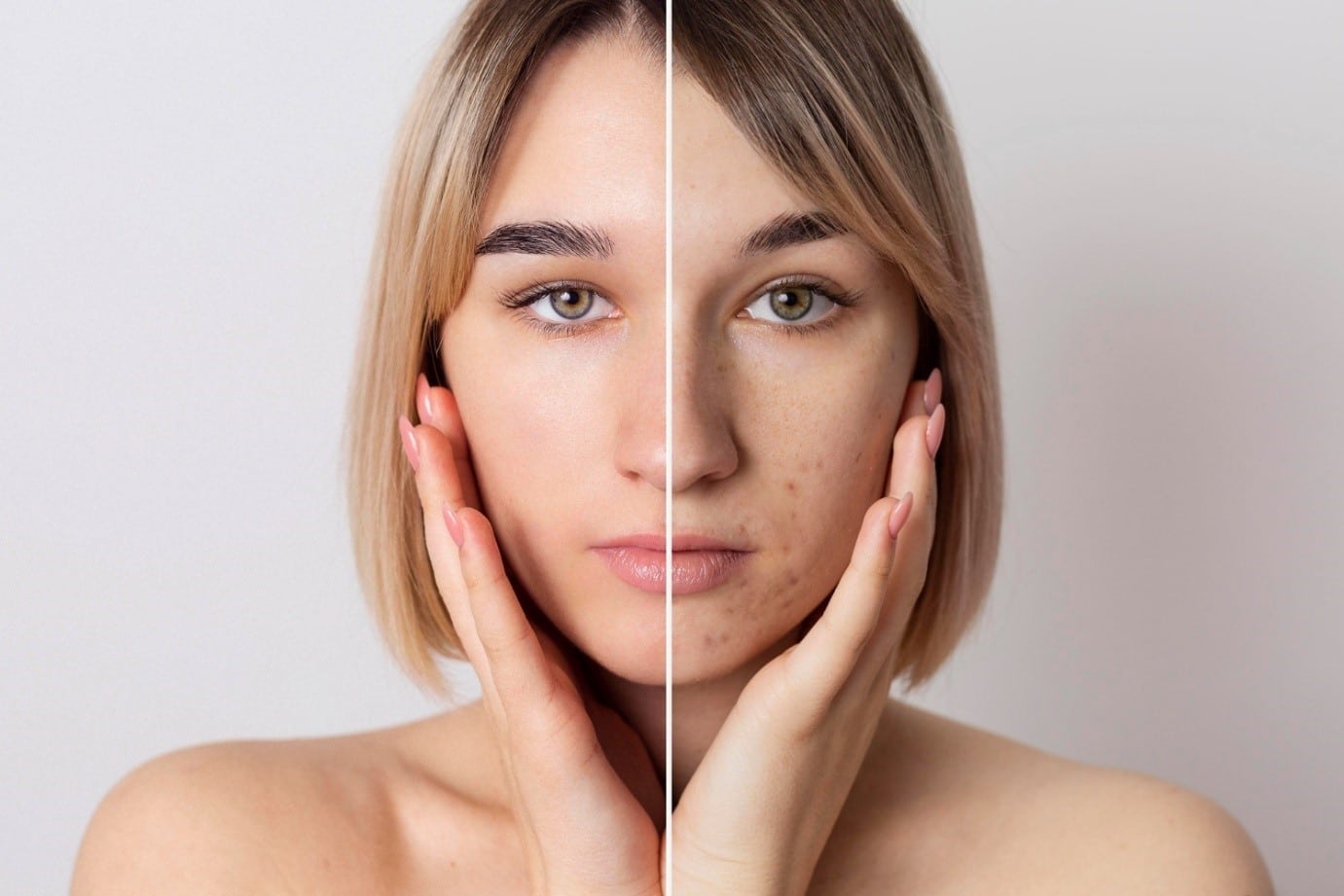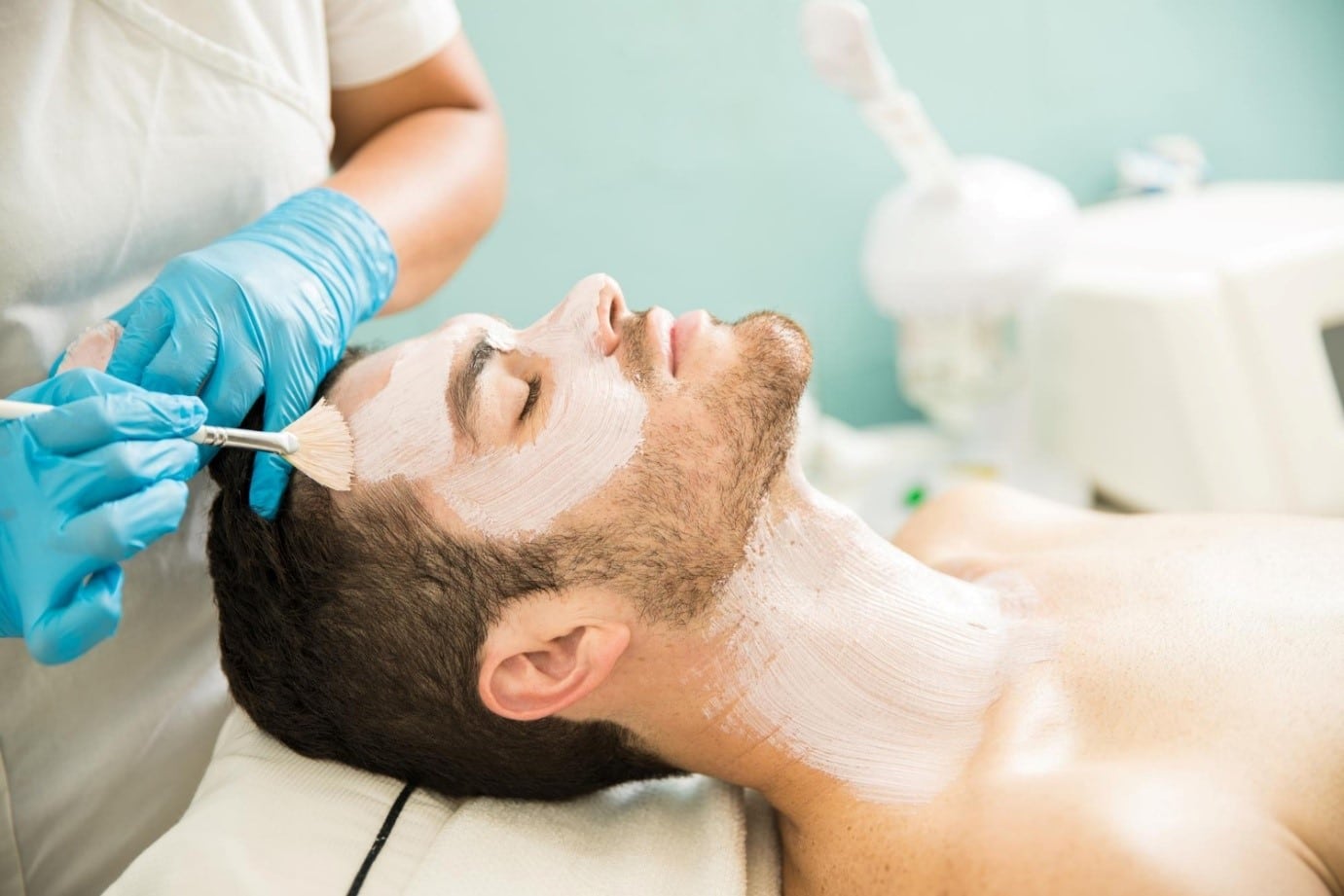
Skin Pigmentation Treatment: Debunking Myths and Exploring Treatment Options
Skin pigmentation disorders can significantly affect one’s self-esteem, leading to concerns about one’s overall appearance. Issues like dark spots or an uneven skin tone can have a profound impact on self-confidence. Pigmentation is the key determinant of skin colour, governed by specialised skin cells responsible for producing melanin. When these cells suffer damage or become unhealthy, it disrupts melanin production, resulting in skin issues like hyperpigmentation. Put simply, an excess of melanin production darkens the skin, while insufficient melanin production lightens it.
In Melbourne, treatment for skin pigmentation is readily accessible, contingent upon the underlying cause and the condition’s severity. Mild pigmentation concerns can often be managed with over-the-counter topical solutions. However, in cases of severe pigmentation, consulting a dermatology expert is advisable.
Within this blog, our aim is to dispel the prevalent myths associated with skin pigmentation while also delving into diverse treatment options. Before exploring these treatment choices and dispelling misconceptions, it’s crucial to gain insight into the root causes of pigmentation irregularities.
Causes of Skin Pigmentation Disorder
Excessive sun exposure ranks among the most prevalent causes of skin pigmentation issues. Prolonged exposure to the sun can indeed lead to pigmentation disorders, resulting in an uneven skin tone. If not addressed, this can exacerbate the appearance of dark spots and patches on the skin.
Hormonal imbalances represent another significant contributor to pigmentation disorders. Certain birth control pills and medications have the potential to trigger pigmentation problems in susceptible individuals.
Furthermore, it’s worth noting that skin trauma can give rise to a condition known as post-inflammatory hyperpigmentation, adding to the array of pigmentation issues.
While a wealth of information on skin pigmentation and its treatment is readily available online, it is essential to acknowledge that misconceptions abound. To make the most informed decisions regarding skin pigmentation treatment, it is crucial to gain a clear and accurate understanding of the condition and its potential remedies.
Common Misconceptions About Skin Pigmentation
1. Skin pigmentation treatment is only for cosmetic concerns
While many seek pigmentation treatment primarily for cosmetic reasons, it’s essential to recognize that these skin conditions can impact more than just appearance. Pigmentation issues like melasma and age spots can have adverse effects on overall skin health. Moreover, age spots resulting from sun damage may increase the risk of skin cancer. Therefore, opting for effective skin pigmentation treatment is crucial for both aesthetic and health-related reasons.
2. All pigmentation issues are the same
It’s a common misconception that all pigmentation issues are identical. In reality, there exist various types of skin pigmentation disorders, including hyperpigmentation, hypopigmentation, melasma, and post-inflammatory hyperpigmentation (PIH). Each of these disorders necessitates a distinct treatment approach.
3. Skin pigmentation treatment is common for all
There’s no universal remedy for pigmentation disorders. The choice of treatment depends on factors such as the specific type of pigmentation disorder, its severity, and the patient’s unique skin type.
4. Skin pigmentation disorder disappears on its own
Contrary to a common misconception, pigmentation issues do not naturally fade without treatment. Depending on the cause, it may take several months or even years for pigmentation marks to lighten. Treatment is often necessary to address and manage these conditions effectively.
5. Sunscreen is not essential if the skin has hyperpigmentation
Having hyperpigmentation does not negate the need for sunscreen. In fact, sunscreen is indispensable for managing hyperpigmentation. Harmful UV rays can exacerbate the condition and lead to further skin damage. To safeguard the skin and prevent worsening of pigmentation issues, it’s crucial to apply a broad-spectrum sunscreen regularly.
By adopting the right approach, it is possible to effectively manage and reduce the appearance of pigmentation problems. Consulting a trusted skin expert in Melbourne for pigmentation treatment, accurate diagnosis, and tailored treatment can help you achieve a more even-toned complexion while addressing potential health concerns.
Effective Skin Pigmentation Treatment Options
1. Treatment for skin pigmentation
Topical solutions are readily available and commonly used to address skin pigmentation concerns. These products are directly applied to the affected areas of the skin. They primarily aim to lighten the skin and even out the skin tone. This treatment method is particularly effective for mild pigmentation issues. Look for key ingredients such as Niacinamide, Vitamin C, and Retinoids in these topical solutions.
2. Chemical Peels
Chemical peels are frequently employed for exfoliation, which also stimulates the growth of new skin cells. A chemical solution is applied to the skin’s surface during this procedure. The peel effectively removes the layer of dead skin cells and unclogs pores, allowing healthier cells to emerge, rejuvenating your skin’s appearance. In many cases, this skin pigmentation treatment requires little to no downtime. The choice of chemical peel for addressing skin pigmentation depends on factors like skin type and the nature of the pigmentation concern. Depending on the severity of the pigmentation, multiple sessions of chemical peel treatment may be necessary.
3. Nd: YAG laser
Q-Switched Nd:Yag laser creates short pulses of high-intensity beam light energy which can be produced at different wavelengths. This makes Q-Switched Nd:Yag is a versatile laser that can treat a variety of skin conditions.
In the treatment of pigmentation, spots and blemishes, the Q-Switched Nd:Yag laser enters the top layers of skin and is absorbed selectively by any pigment. The absorption of this high-intensity pulsed energy causes the pigment to break down into smaller fragments which are easily removed by the body’s immune system naturally.
4. SkinPen
SkinPen is the latest medical automated skin-needling device recommended for collagen induction and scar reduction. It uses very fine needles of the highest quality and a motorised hand-piece to rapidly “stamp” the skin to stimulate collagen production and skin rejuvenation.
At Bioscor, we have always implemented the best technology for skin and hair treatments. Our clinicians are trained to treat your skin with SkinPen. This skin-needling process has proven to be highly effective in treating skin concerns. As we all know, our skin starts to deteriorate as we age, leading to concerns such as age spots, pigmentation, fine lines, scars, uneven skin texture, and pores. SkinPen increases cell turnover and stimulates collagen production which helps in promoting natural skin healing. SkinPen targets pigmentation (even melasma and age spots) and improves uneven skin tone by encouraging new cell turnover.
5. Dermal Infusion with RevitaPen
Bioscor’s Dermal Infusion with RevitaPen is a non-inflammatory, non-acid, NO NEEDLES, no pain skin peel, suitable for all skin types and conditions. Its unique technology allows it to work with the skin’s normal cellular processes to promote collagen production and cellular turnover, helping to nourish, heal and treat even the most sensitive of skin types. The process helps reduce Hyper-pigmentation and improve overall skin tone.
A Dermal Infusion uses high-dose, therapeutic active ingredients that are applied topically to travel deep within the skin through liposomal delivery. This delivery to the dermal layer promotes rejuvenation through skin remodelling, increased circulation, heightened immune response and increased hydration. The result is a healthy glowing skin while addressing any troubled areas.
To explore these options and determine the most suitable skin pigmentation treatment for your specific needs, we encourage you to consult with our skin experts at Bioscor. Our clinicians will assess your skin, identify the underlying cause of your pigmentation issues, and recommend a personalized skin pigmentation treatment plan tailored to your unique requirements.
